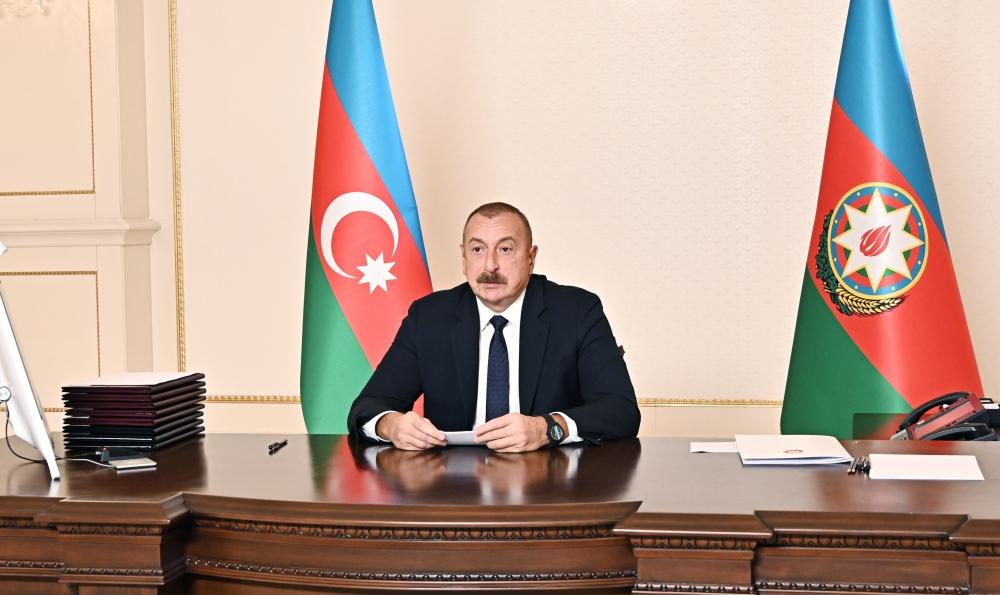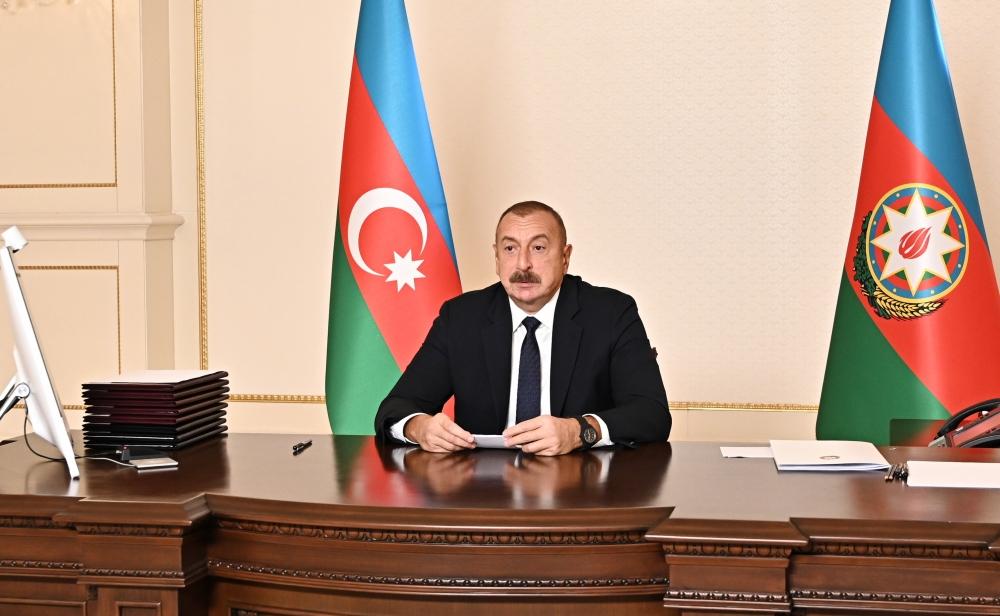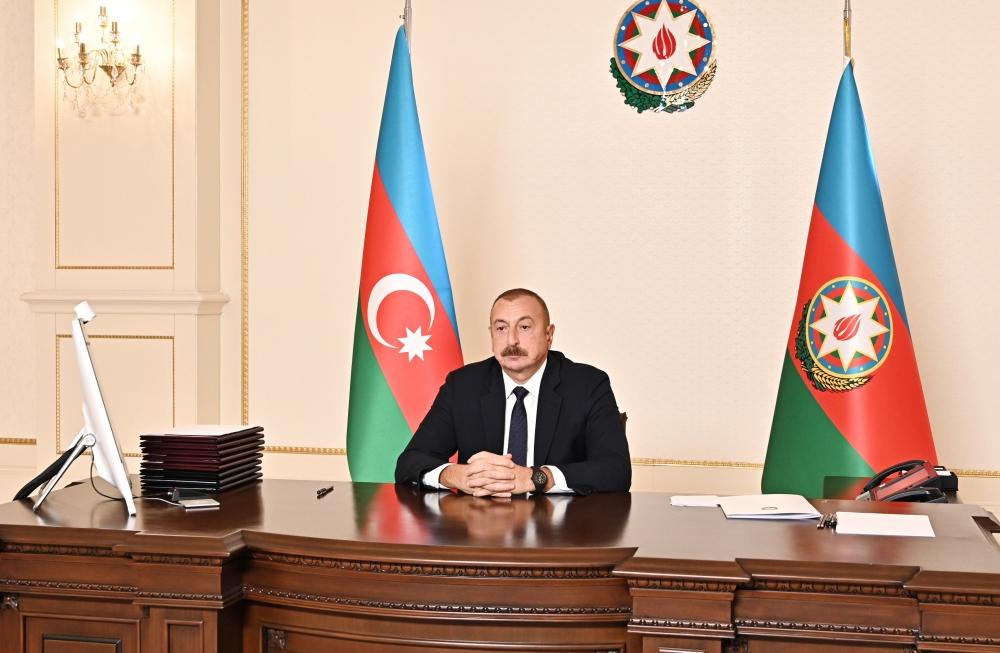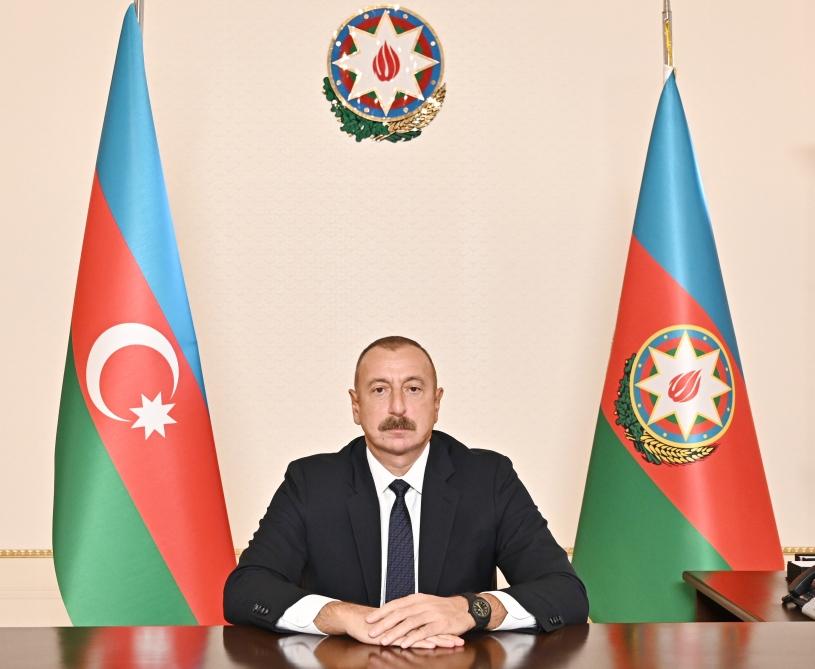Azerbaijan blocked Armenia-Iran-Europe drug trafficking route [UPDATE]
![Azerbaijan blocked Armenia-Iran-Europe drug trafficking route [UPDATE]](https://www.azernews.az/media/2021/10/15/jrpoejgrg41.jpg)
By Vafa Ismayilova
President Ilham Aliyev has said that Azerbaijan blocked the drug trafficking route from Iran to Armenia and then to Europe that used to pass through the country's liberated Jabrayil region, Azertag has reported.
He made the remarks in an address to the session of the Council of the CIS Heads of State held in the format of a video conference on October 15.
Drug trafficking route
“Over the past year, after Azerbaijan had regained control over the 130-kilometer section of the state border with Iran which was under the control of Armenia for about 30 years and thereby blocked a drug trafficking route from Iran through Jabrayil district of Azerbaijan to Armenia and further to Europe," he said.
The president added that the volume of heroin Azerbaijan had seized on other sections of the Azerbaijani-Iranian border doubled compared to the same period of previous years.
"This suggests that for about 30 years, Armenia, in collusion with Iran, used the occupied territories of Azerbaijan to carry out drug trafficking to Europe,” Aliyev said.
He stressed that during the years of occupation, he had repeatedly stated that the occupied territories were used for drug trafficking and training of international terrorists.
Mine maps, "POWs"
Later, he spoke about Azerbaijan's readiness for talks with Armenia over the border delimitation.
“War and the conflict are now things of the past. We are ready to start negotiations with Armenia on the delimitation of borders on the condition of mutual recognition of territorial integrity. We are also ready to start negotiations on a peace agreement with Armenia,” he said.
The head of state noted that Azerbaijan is ready to normalize relations as a victorious country.
"We do hope that Armenia will not pass up on this historic opportunity,” he added.
Aliyev stressed that Armenia refuses to provide Azerbaijan with maps of mines it had planted on liberated Azerbaijani territories.
"Since the war ended, more than 150 Azerbaijani citizens have been killed or seriously injured by landmines,” he said.
Aliyev stressed that Armenia was refusing to provide Azerbaijan with full maps of mined areas.
“The accuracy of the few maps provided to Azerbaijan so far is about 25 percent,” he added.
The president also touched on the so-called prisoners of war issue raised by Armenia.
"Azerbaijan handed over all prisoners of war detained during the war before Armenia handed over Azerbaijani prisoners of war to us. More than two weeks after the signing of the Tripartite Declaration, a group of 62 saboteurs was sent from Armenia's Shirak region to the rear of the Azerbaijani armed forces in late November last year to carry out provocations on the liberated territories. Azerbaijani servicemen captured and disarmed the group," he said.
Aliyev stressed that those saboteurs cannot be considered prisoners of war under international conventions.
Destructions
Speaking about Armenian destructions he said that houses and buildings on the occupied territories were taken apart brick by brick and sold to Armenia and Iran.
“Severe damage has also been caused to nature. About 60,000 hectares of forest have been cut down and sold to Armenia and Iran,” Aliyev said.
“Almost all buildings and historical sites in the liberated territories had been destroyed for 30 years. Out of 67 mosques in the liberated areas, 65 were completely destroyed,” the president added.
He touched on destructions in Shusha as well.
“Armenia has destroyed 16 of the 17 mosques in Shusha in the years of occupation. One mosque was left to demonstrate 'tolerance' and an attempt was made to portray it as a Persian mosque with the help of so-called experts from Iran,” Aliyev noted.
He stressed that the city of Aghdam is called the “Hiroshima of the Caucasus”.
"In the city of Fuzuli and all villages of Fuzuli district, 100 percent of buildings and houses have been destroyed. The same holds true for the city of Aghdam and Aghdam district. The city of Aghdam was called the 'Hiroshima of the Caucasus'. In Jabrayil district, only two buildings remained standing, and those were used by servicemen of the Armenian armed forces. The situation is not dissimilar in Zangilan, Gubadli, Lachin and Kalbajar districts," he said.
Aliyev noted that the Karabakh conflict had been consigned to history and that Azerbaijan resolved the conflict militarily as the long-running process of negotiations was fruitless.
“Therefore, Azerbaijan decided to resolve the conflict by military and political means.”
The president underlined the illegal exploitation of Azerbaijan’s gold deposits and other natural resources.
"With the participation of a European company, the transboundary Okhchuchay River was systematically polluted, which led to an environmental disaster already confirmed by reputable international experts. Such is the real picture in the liberated territories, and this has been observed by thousands of politicians, diplomats, and journalists from many countries who have visited the liberated territories in less than one year, including representatives of the CIS countries," he added.
Russia's role in ceasefire
The head of state hailed Russia's role in achieving a ceasefire.
“I would like to emphasize once again the special role of Russian President Vladimir Vladimirovich Putin in the cessation of hostilities. This allowed both sides the opportunity to avoid thousands of casualties,” Aliyev said.
He stressed that in accordance with the trilateral statement, Armenia withdrew its occupying forces from the occupied parts of Aghdam, Lachin and Kalbajar regions of Azerbaijan.
“Prior to that, the armed forces of Azerbaijan had liberated more than 300 towns and villages on the battlefield. Thus, as already mentioned, the conflict was resolved by both military and political means. According to the Trilateral Statement, Russian peacekeepers have been deployed in the Karabakh region of Azerbaijan. A working group chaired by the deputy prime ministers of Russia, Azerbaijan and Armenia has been set up to resolve the issue of opening transport communications," he added.
--
Follow us on Twitter @AzerNewsAz
Here we are to serve you with news right now. It does not cost much, but worth your attention.
Choose to support open, independent, quality journalism and subscribe on a monthly basis.
By subscribing to our online newspaper, you can have full digital access to all news, analysis, and much more.
You can also follow AzerNEWS on Twitter @AzerNewsAz or Facebook @AzerNewsNewspaper
Thank you!




